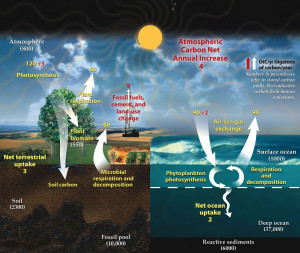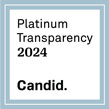A New Years Resolution for the Climate
January 7, 2016
By Courtney Mattison
The dust has settled following the momentous COP21 climate summit in Paris last month, and now the real work begins. Ministers from nearly 200 countries have voluntarily committed to scale up the global response to climate change by reducing greenhouse gas emissions, backing sustainable development and renewable energy projects, working to eradicate poverty in areas threatened by the effects of climate change, and ratchet up those efforts over time. The 32-page COP21 Paris Agreement even recognizes the ocean—a key driver of climate and weather covering 71 percent of our planet—as an important ecosystem to protect despite the fact that the ocean was not included in the COP21 agenda. What happens next is as important as what has been agreed.
The ocean conservation community is celebrating the Paris Agreement as a major step forward toward weaving ocean issues into future climate negotiations. “The ocean drives climate, shapes the weather, governs the temperature of the planet,” said Mission Blue founder and National Geographic Society Explorer-in-Residence Dr. Sylvia Earle at the conclusion of the meetings. Absorbing nearly 30 percent of human-produced carbon dioxide (CO2) emissions, the ocean serves as a massive carbon sink that plays a key role in reducing the amount of CO2 trapped in our atmosphere. Scientists warn that the ocean may be nearing a saturation point in its ability to absorb so much of this greenhouse gas, at which time much more CO2 would collect in our atmosphere and throw global warming into overdrive. Moreover, CO2 dissolving into the ocean causes seawater to become more acidic, making it difficult for organisms like corals and mollusks to precipitate their calcium carbonate shells and causing juvenile reef fish to lose their sense of smell. Other impacts of ocean acidification are still just beginning to surface.
Scientists warn that the ocean may be nearing a saturation point in its ability to absorb so much of this greenhouse gas, at which time much more CO2 would collect in our atmosphere and throw global warming into overdrive. Moreover, CO2 dissolving into the ocean causes seawater to become more acidic, making it difficult for organisms like corals and mollusks to precipitate their calcium carbonate shells and causing juvenile reef fish to lose their sense of smell. Other impacts of ocean acidification are still just beginning to surface.
The word ocean appears just once in the Paris Agreement, but the concept of protecting carbon sinks is more prevalent. Alongside forests and other intact terrestrial ecosystems, the ocean serves as a massive carbon sink, taking up large quantities of CO2 as plankton photosynthesize and sinking organic matter churns through ocean currents, locking the dissolved gas underwater and thus sequestering “blue carbon.” Marine protected areas—like national parks underwater—help leave blue carbon below the waves by preventing commercial fishing, which removes millions of tons of marine wildlife like tuna and shrimp that are, as Dr. Earle says, “like trees, carbon-based units that capture and sequester carbon, ultimately in long-term storage within deep sea sediments.” A provision in the Paris Agreement alludes to protecting these caches of carbon:
Parties should take action to conserve and enhance, as appropriate, sinks and reservoirs of greenhouse gases
By recognizing ocean ecosystem integrity as a key part of the solution to the climate crisis, the Paris Agreement provides a solid basis from which to build ocean issues into the agenda in future meetings. “Many signs of hope around here,” noted Dr. Earle on the last day of the summit. She continued, “All around, I’m listening, I’m listening, and I hear the voice of the people. And there’s a growing sense of caring, which will lead to positive action.”
These signs of hope are counterbalanced with important concerns, however. In aiming to keep global warming “well below” 2°C above pre-industrial levels while pursuing efforts to limit it to 1.5°C, policymakers have embarked on a massive, and perhaps impossible, undertaking. Some researchers doubt whether the 2°C temperature increase limit is even attainable without controversial “negative emission technologies.” To make things worse, many leading marine researchers agree that 2°C warming would be too much for much life in the ocean to handle, and that the 1.5°C temperature rise target is the maximum allowable to protect vulnerable people living on low-lying islands from sea level rise and safeguard vulnerable ecosystems like coral reefs.
If the global community is to follow through with these commitments and mark a turning point in the history of climate change and the fate of all species, we must act urgently. The Paris Agreement takes effect in 2020, but we cannot wait that long to begin dramatically shifting how our countries consume energy, emit greenhouse gases and adapt to an already changing climate. Each one of us can make a difference. Here are some ways you can help:
- Hold policymakers accountable to their commitment to pursue efforts to limit warming to 1.5°C. Join Bill McKibben and remind them, “You said 1.5!”
- Vote for political leaders who believe in developing robust, science-based solutions to climate change in support of the Paris Agreement.
- Support the establishment of more fully protected marine reserves. Write to policymakers in charge of managing marine resources and inform them that fully protecting marine areas by restricting all fishing, mining and other extractive practices helps mitigate climate change while allowing fish stocks to recover. It’s a win-win!
- Help local environmental and research organizations develop strategies to work with your country’s government to incorporate ocean protection into national climate change policies.
- Support eco-friendly businesses that have policies to help protect and restore the environment. Choose not to eat marine wildlife, or if you do, select sustainably sourced seafood.
Sierra Club Executive Director Michael Brune suggests:
If you’re living near a coal plant, you need to work now to shut it down and to make sure that it’s replaced by clean energy. If you have fracking in your backyard, we need to work together to make sure that clean energy is installed instead, because it will do a much better job of creating jobs. If you’re fighting a coal export terminal or an LNG export terminal, or if you’re fighting the extraction of fossil fuels almost anywhere, then we need to work together to stop exporting defeatism and dirty fuels, but start exporting optimism and clean energy… we have to make sure that we are electing leaders who are more ambitious than our current ones… We don’t need dirty fuels in order to make a just society that works for everybody.
Ultimately, today’s youth are the best hope we have of halting climate change and following through with the Paris Agreement. Fifteen-year-old Chiara Crompton, who attended the COP21 summit and made the video diary below, says, “We have to make sure that future generations, my generation, is given a chance—a starting point for creating significant change for our future.” As an individual whose future depends on decisions made today, Crompton hopes “that optimism is not proven to be naiveté, as I believe completely that the beginning of a better future from now can be achieved.”







